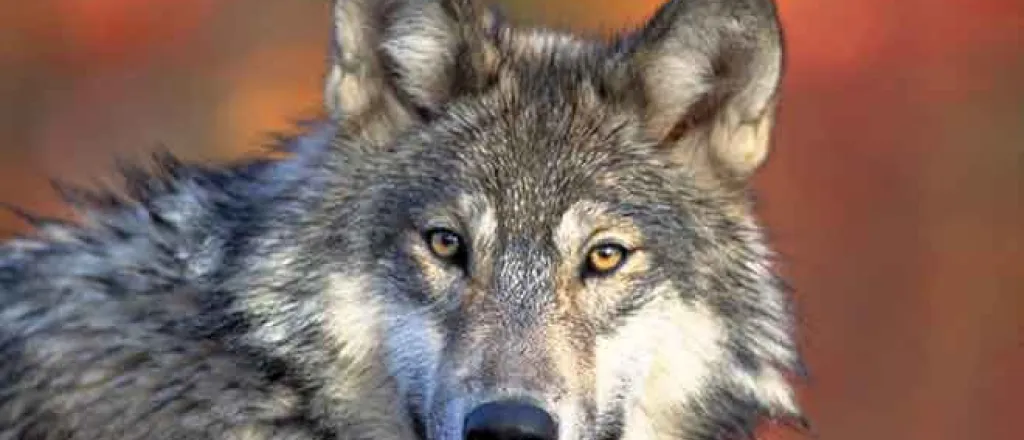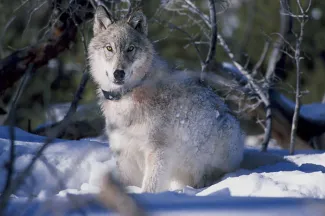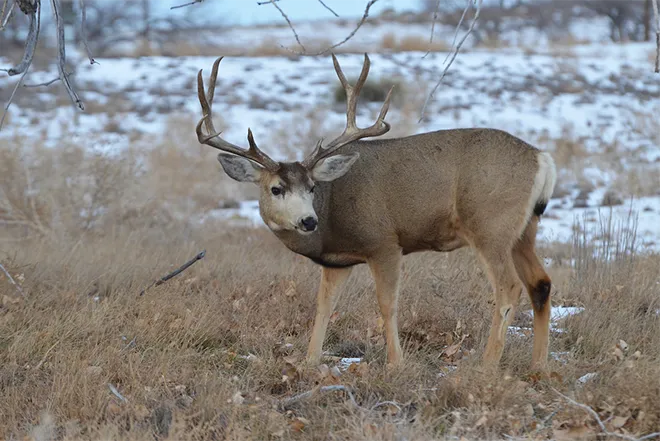
Washington considers reclassifying gray wolves as 'sensitive' species
Click play to listen to this article.
(Washington News Service) The State of Washington is proposing to downgrade gray wolves from "endangered" to "sensitive" status as a species.
At last count, there were 260 gray wolves in Washington, a population which has steadily grown at an average rate of 23 percent since 2008, according to the Department of Fish and Wildlife.

USFWS - public domain
Colin Reynolds, senior adviser for the Northwest program at Defenders of Wildlife, contended changing the gray wolf status could jeopardize the progress. He said in the western two-thirds of the state, gray wolves are protected under the federal Endangered Species Act but in the eastern third, there are no federal protections and wolves are managed by the state.
"Right now in the eastern third of Washington, there are penalties for the illegal killing of gray wolves, and there's also penalties ascribed to that," Reynolds explained. "If the classification goes from 'endangered' to 'sensitive,' as the Washington Department of Fish and Wildlife would like, those penalties are a little bit less, in a number of circumstances."
Reynolds pointed out the gray wolf recovery efforts are guided by the state's Wolf Conservation and Management Plan, adopted in 2011. Since then, wolves have met recovery standards in certain parts of the state but not all, so he argued it is no time to change the rules.
The state countered reclassification is warranted, as gray wolves have seen 15 years of consecutive population growth, data models project it is likely to continue and there are enough state-level protections already in place to keep the population sustainable. Reynolds disagreed.
"We totally recognize and celebrate that the population has grown," Reynolds acknowledged. "But a population growth isn't the same as the recovery standards in the Wolf Plan. We haven't met that geographical distribution."
Reynolds also noted recent instances of gray wolf killings across the West. The deaths of three gray wolves in Oregon prompted the U.S. Fish and Wildlife Service to issue a $50,000 reward for information about the case.

















